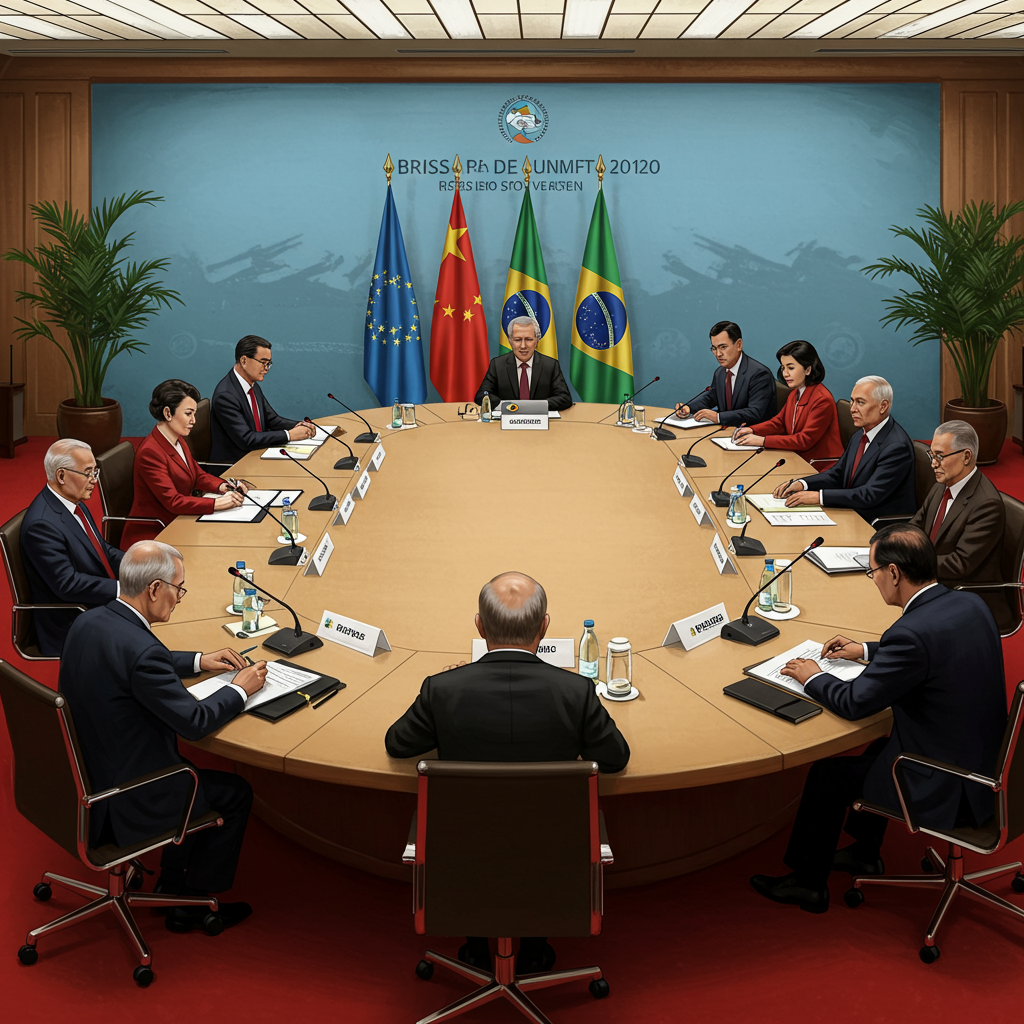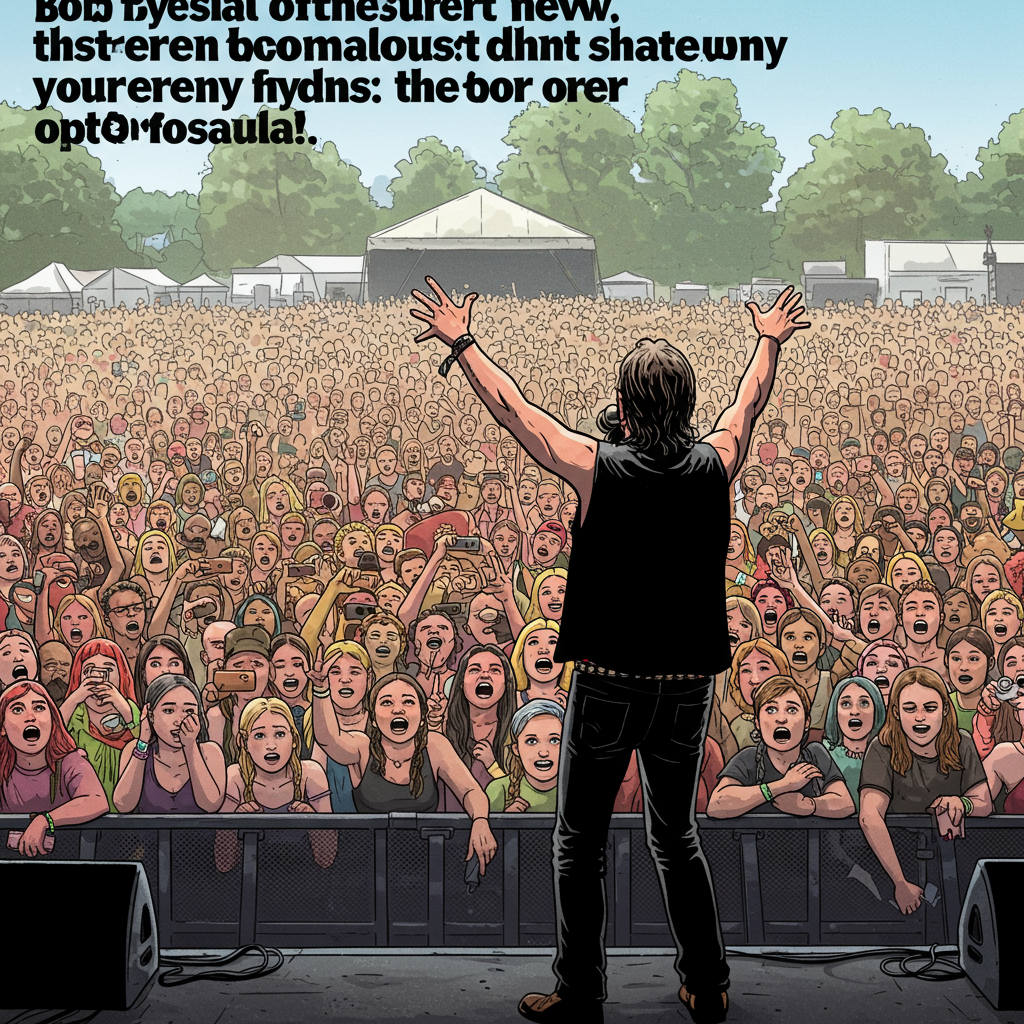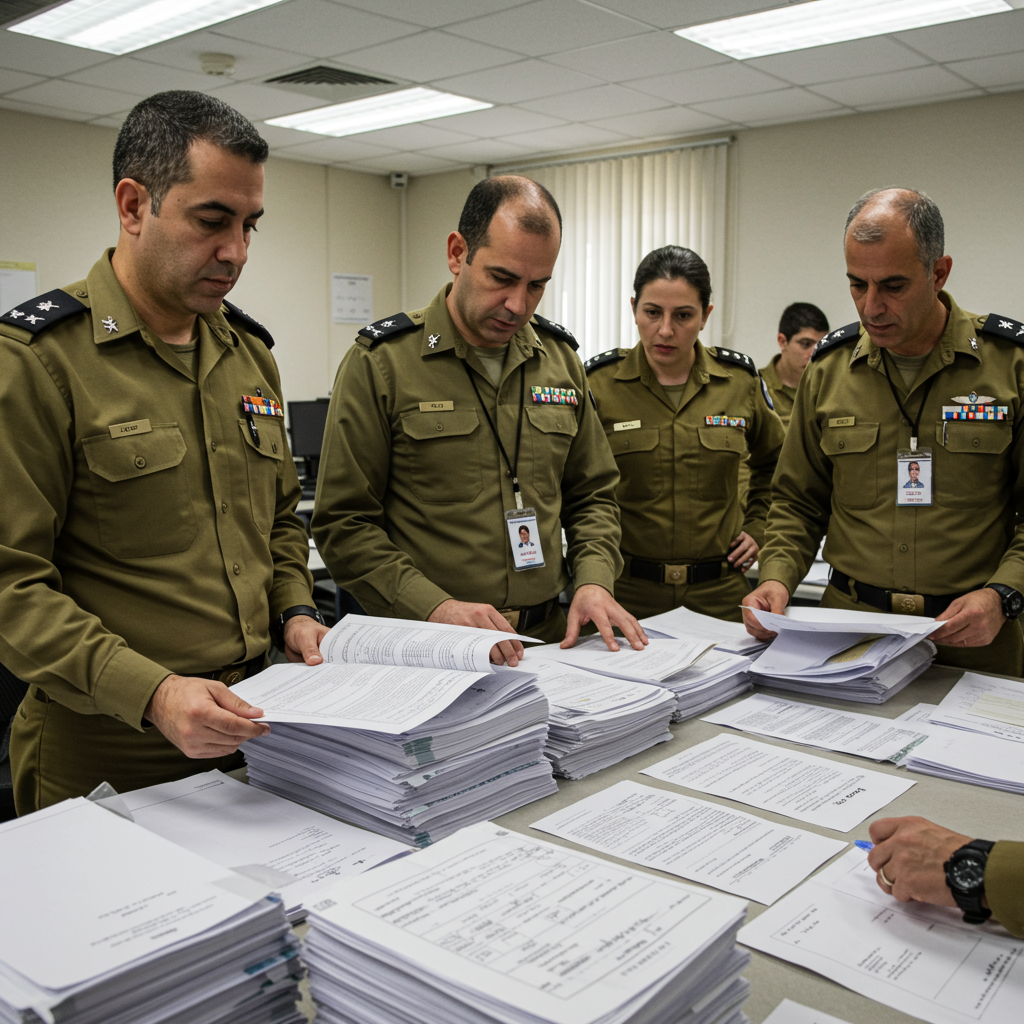The recent brics summit in Rio de Janeiro saw the expanded bloc of emerging economies take definitive positions on several critical global issues. Leaders from the 10-member group issued a joint declaration sharply criticizing Israeli actions in Gaza, condemning attacks on Iran, and pushing back against unilateral trade measures, widely seen as targeting former US President Donald Trump’s protectionist policies. This gathering underscored BRICS’ evolving role as a prominent voice for the Global South, navigating complex geopolitical dynamics while advocating for a multipolar world order.
BRICS Leaders Address Global Flashpoints in Rio
Convening in Brazil in July 2025, the BRICS summit highlighted deep concerns within the bloc regarding ongoing international conflicts and economic tensions. The joint statement reflected consensus among members on condemning military actions deemed violations of international law, particularly in the Middle East, and challenging protectionist trade practices they argue destabilize the global economy. Brazilian President Luiz Inacio Lula da Silva hosted the summit, emphasizing the importance of multilateralism under pressure.
Strong Rebuke Over Middle East Conflicts
The summit declaration delivered a pointed condemnation of recent military strikes against Iran by the United States and Israel. BRICS leaders described these bombardments in June as a “blatant breach of international law” and the UN Charter. They voiced grave concern over the escalating security situation, specifically highlighting deliberate attacks on civilian infrastructure and peaceful nuclear facilities within Iran.
The conflict saw Israeli air strikes beginning June 13, reportedly resulting in hundreds of deaths and thousands of injuries, followed by Iranian retaliatory strikes causing dozens of casualties. The bloc’s statement stressed the vital importance of upholding nuclear safety and security protocols, especially in zones of armed conflict, to protect populations and the environment.
Regarding the protracted conflict in Gaza, now entering its twenty-second month, BRICS members expressed profound alarm. They strongly denounced the use of starvation as a weapon and rejected the politicization or militarization of humanitarian aid delivery to the enclave. The group reaffirmed its support for UNRWA, the United Nations agency providing crucial assistance to Palestinian refugees, which has faced severe challenges and bans.
The declaration reiterated the widely held international consensus that Gaza and the occupied West Bank are integral components of a future independent Palestinian state, with East Jerusalem as its capital. This stance comes amid ongoing conflict that followed the October 7, 2023, Hamas attacks, which killed nearly 1,200 people in Israel. Israel’s subsequent military campaign in Gaza has led to a devastating humanitarian crisis, resulting in the deaths of over 57,000 Palestinians, predominantly women and children, and widespread destruction of civilian infrastructure. Over 1,000 Palestinians have also been killed in the West Bank during this period.
Navigating the Ukraine Conflict: Silence on Russia, Criticism for Kyiv
While the BRICS declaration was forthright in condemning attacks on Iran and addressing the Gaza situation, it maintained a notable silence on Russia’s ongoing war in Ukraine, now in its fourth year. Russia is a founding member of the BRICS bloc, and the joint statement carefully avoided direct criticism of Moscow for the conflict.
Instead, the declaration included specific criticism of Ukrainian attacks on Russian territory in May and June, citing civilian casualties. The bloc expressed its “strongest” opposition to such actions.
The statement did include a call for a “sustainable peace settlement” in Ukraine. It also acknowledged and expressed appreciation for various mediation efforts aimed at resolving the conflict through dialogue and diplomacy, such as the African Peace Initiative and the Group of Friends for Peace. This approach highlights the bloc’s delicate balancing act among its diverse member interests, particularly regarding the Ukraine war.
Taking Aim at Protectionism and Trump’s Tariff Threats
Amid rising global trade tensions, the BRICS leaders collectively criticized protectionist economic policies without directly naming any specific country. The joint declaration condemned “unilateral tariff and non-tariff barriers.” They argued these measures “skew global trade and flout WTO [World Trade Organization] regulations.” This was widely interpreted as a clear, albeit indirect, critique of the protectionist agenda championed by former US President Donald Trump.
The timing of the BRICS statement coincided with an impending deadline on Wednesday for new US tariffs potentially going into effect. Trump swiftly responded to the declaration via his social media platform, Truth Social. He warned that countries aligning with what he termed “Anti-American policies” of BRICS would face punitive economic measures. “Any Country aligning themselves with the Anti-American policies of BRICS, will be charged an ADDITIONAL 10% Tariff,” he wrote, adding, “There will be no exceptions to this policy.”
China’s Foreign Ministry spokesperson, Mao Ning, countered Trump’s threat, asserting that BRICS is a platform for cooperation, not an anti-US alliance. She characterized the use of tariffs as incorrect political pressure, stating that “trade wars harm everyone” and are ineffective.
The BRICS declaration also took a strong stance against “unilateral coercive measures,” including economic sanctions. Members argued that such measures violate international law and harm human rights, pointing out that BRICS members Iran and Russia have been subjected to longstanding US sanctions.
The bloc voiced significant concern about the potential negative impacts of unilateral trade policies. They warned that the proliferation of trade-restrictive actions, such as indiscriminate tariff increases and non-tariff measures, risks reducing global trade, disrupting supply chains, and heightening economic uncertainty. Such actions, they stated, undermine prospects for global development.
Economically, the BRICS bloc represents significant global weight, accounting for approximately half the world’s population and around 40% of global economic output. According to April data from the International Monetary Fund, BRICS economies are projected to grow collectively at 3.4 percent in 2025, outpacing the global average forecast of 2.8 percent. Brazil, China, and India are already counted among the world’s top 10 largest economies.
An Expanding Bloc and Shifting Dynamics
The BRICS group, which began in 2009 with Brazil, Russia, India, and China, welcomed South Africa in 2010. The bloc has since evolved into a significant voice for the Global South. In 2023, it underwent a major expansion, adding Indonesia, Egypt, Ethiopia, Iran, and the United Arab Emirates, bringing the core membership to 10 nations.
The Rio summit marked Indonesia’s first participation as a full member. Interest in joining the bloc remains high among emerging economies, with reports suggesting over 30 nations have expressed interest. However, Argentina, which was expected to join, withdrew its application following the election of ultra-conservative President Javier Milei, a known ally of Donald Trump, in December 2023.
Beyond full membership, the BRICS statement welcomed ten countries as new BRICS partner countries: Belarus, Bolivia, Kazakhstan, Cuba, Nigeria, Malaysia, Thailand, Vietnam, Uganda, and Uzbekistan. This new status is intended to foster increased cooperation between the bloc and these nations.
While Brazilian President Lula led the summit, several key leaders were notably absent. Chinese President Xi Jinping, who had attended all previous summits since 2013, was represented by Premier Li Qiang. Russian President Vladimir Putin and Iranian President Masoud Pezeshkian were represented by their foreign ministers. Putin’s absence is linked to an International Criminal Court (ICC) arrest warrant issued against him over his role in the Ukraine war; Brazil, as an ICC member, would have been obligated to arrest him if he visited, based on the Rome Statute that established the court.
In his opening remarks, President Lula sharply criticized multilateralism being under attack and targeted NATO, accusing the alliance of fueling an arms race by urging members to spend 5% of GDP on defense, stating it’s “always easier to invest in war than in peace.” He also accused Israel of carrying out “genocide” in Gaza.
Other Key Areas of BRICS Cooperation and Statements
The BRICS declaration covered a range of other issues, demonstrating the bloc’s broad agenda beyond immediate conflicts and trade disputes.
The group strongly condemned the terrorist attack in Pahalgam, India-administered Kashmir, which killed 26 civilians in April. Describing it as “criminal and unjustifiable,” the statement urged “zero tolerance” for “terrorism” and rejected any “double standards” in counterterrorism efforts. BRICS members reiterated their commitment to combating terrorism in all its forms, including addressing cross-border movement, financing, and safe havens. They called for concerted action against UN-designated terrorist entities and supported the swift adoption of the Comprehensive Convention on International Terrorism within the UN framework.
BRICS also advocated for a comprehensive reform of the United Nations Security Council (UNSC). The declaration called for the UNSC to be made more democratic, representative, effective, and efficient, specifically aiming to increase the representation of developing countries. Notably, China and Russia, as permanent UNSC members, reiterated support for the aspirations of Brazil and India to play a greater role in the UN, using stronger language than in previous declarations by specifically mentioning support “including in UNSC.” This position aligns closely with India’s long-standing goal of obtaining a permanent seat on the Security Council and amplifies the collective voice of the Global South on global governance reform.
Economic cooperation initiatives were also discussed. The bloc welcomed plans for a pilot initiative within the New Development Bank (NDB) called the BRICS Multilateral Guarantees (BMG). This initiative aims to lower financing costs and boost investment among member states. The NDB’s growing influence in promoting development in the Global South, particularly through local currency financing, was acknowledged.
Other areas of focus included calling for protections against unauthorized AI use and excessive data collection, promoting a fair and inclusive international tax system, and reaffirming commitment to the goals of the Paris Agreement on climate change. India’s candidacy to host the 33rd Conference of the Parties (COP 33) of the UNFCCC in 2028 was welcomed. India’s ‘International Big Cats Alliance’ initiative was also recognized.
India is set to host the next BRICS summit in 2026.
Frequently Asked Questions
What were BRICS’ main criticisms at the Rio summit?
At the July 2025 BRICS summit in Rio de Janeiro, the bloc issued strong condemnations of military strikes against Iran by the US and Israel, labeling them violations of international law. They also denounced the humanitarian crisis in Gaza, criticizing the use of starvation as a weapon and supporting UNRWA. Economically, BRICS criticized unilateral tariff and non-tariff barriers, seen as a critique of Trump’s protectionism, and spoke out against unilateral sanctions. Notably, they remained silent on Russia’s role in the Ukraine war but criticized Ukrainian attacks on Russian soil.
Which countries joined BRICS recently or became partners?
The BRICS bloc expanded its full membership in 2023 by adding Indonesia, Egypt, Ethiopia, Iran, and the United Arab Emirates, bringing the total to 10 members. At the Rio summit, BRICS also welcomed ten new BRICS partner countries. These nations are Belarus, Bolivia, Kazakhstan, Cuba, Nigeria, Malaysia, Thailand, Vietnam, Uganda, and Uzbekistan. This new partner status aims to increase cooperation without conferring full membership.
How might BRICS’ stance on tariffs impact global trade?
BRICS, representing a significant portion of the world’s economy, voiced “serious concerns” that unilateral tariffs and trade barriers violate WTO rules and harm global development prospects. Their collective opposition, particularly directed implicitly at Trump’s policies, signals a desire among these major emerging economies to maintain an open, multilateral trading system. While they lack enforcement power comparable to the WTO, their unified stance highlights the economic risks of protectionism and encourages members and partner countries to resist such measures, potentially influencing global trade flows and negotiations.
Conclusion
The BRICS summit in Rio de Janeiro showcased the bloc’s increasingly assertive role on the world stage. By issuing firm condemnations on complex issues like the attacks on Iran and the humanitarian situation in Gaza, while navigating sensitive topics like the Ukraine war, BRICS demonstrated its commitment to shaping the global discourse from a perspective often distinct from Western powers. Their strong stance against protectionist tariffs and unilateral sanctions further solidified their position as advocates for a reformed, multilateral international order and a more equitable global economy. As the bloc continues to expand its membership and partnerships, its influence as a voice for the Global South is poised to grow, setting the stage for future discussions at the upcoming summit hosted by India in 2026.
Word Count Check: 1218




